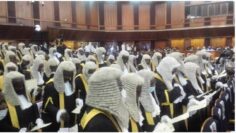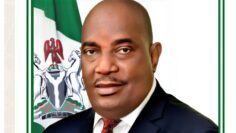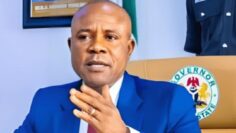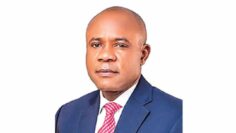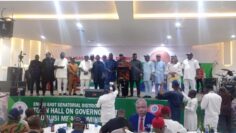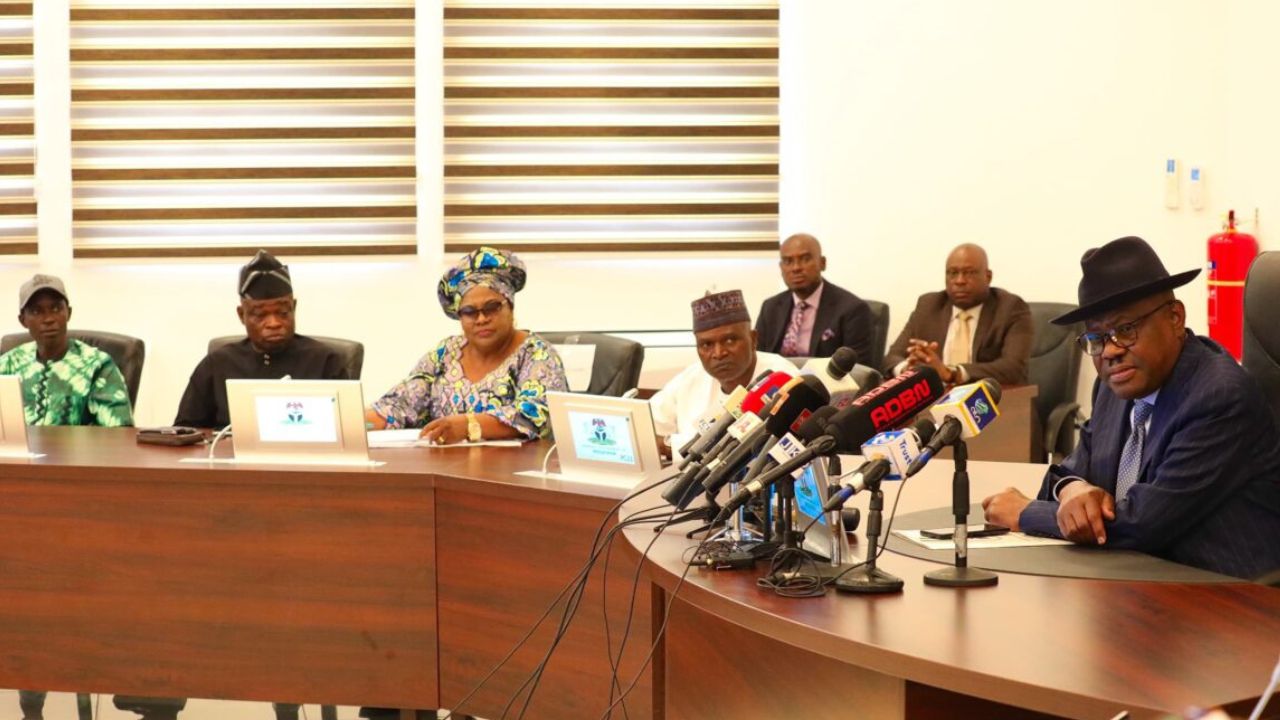
FCT Primary School Teachers Likely to End Three Month Strike After Minister Wike’s Intervention
After nearly three months of strike action, primary school teachers in the Federal Capital Territory (FCT) may soon return to the classroom following a major breakthrough led by FCT Minister, Nyesom Wike.
The development came after a closed door meeting held in Abuja on Thursday, July 3, 2025. The meeting brought together top stakeholders including: Officials from the Nigeria Union of Teachers (NUT),Area Council Chairmen, Representatives of the FCT Administration (FCTA)
Members of the National Assembly, Leadership of the National Association of Nigerian Students (NANS)
According to the Chief of Staff to the Minister, Mr. Chidi Amadi, the meeting was organized as part of the Minister’s continued efforts to resolve the lingering crisis and restore normal academic activities in FCT public primary schools.
At the heart of the resolution was an agreement to use six months’ worth of 10% Internally Generated Revenue (IGR) from all Area Councils. The money will be channeled toward paying about 70% of the minimum wage arrears owed to the striking teachers.
Although this will not fully settle all outstanding payments, Mr. Amadi described it as a major and encouraging step toward ending the strike and rebuilding trust between teachers and the government.
“This is a laudable move toward addressing the fracas once and for all. The 70% payment is significant and shows genuine commitment by the government to meet the teachers’ demands,” Amadi stated.
As part of long-term measures, a Special Committee has been set up by the minister to address the remaining issues that were not covered in the meeting. The committee includes: Three members from NUT, Two officials from the FCTA, One representative from the Area Council Chairmen, One representative from NANS
This committee is expected to present a detailed report in two weeks outlining how all other outstanding demands will be resolved permanently.
Beyond the issue of primary school teachers, Minister Wike also promised to take direct action to settle long standing issues affecting local government employees across the FCT. According to Amadi, Wike expressed deep concern over the state of workers and vowed to ensure that the Area Councils resume full operations immediately.
Speaking on behalf of all the Area Council Chairmen, Mr. Abubakar Abdullahi confirmed their support for the resolution. He acknowledged that surrendering six months’ worth of IGR was a tough decision but noted that it was the best course of action for the future of FCT children.
“This decision was not easy. It’s a heavy financial burden, but we had to prioritize the education of our children and bring an end to this crisis,” Abdullahi said.
He also pointed out that Minister Wike acted outside his legal authority by deciding to use the IGR, but the council chairmen agreed voluntarily because they shared the desire to end the strike.
“Wike clearly said he has no legal right to divert our IGR, but all the chairmen agreed because we want this matter resolved. We are begging NUT to consider the future of our children and return to the classrooms,” he added.
The President of the National Association of Nigerian Students (NANS), Olushola Oladoja, praised the outcome of the meeting, describing it as a bold and people-oriented decision.
He noted that any of the council chairmen could challenge Wike in court, but none did because of the collective commitment to solving the issue.
“This shows real leadership. Minister Wike and the chairmen have chosen peace and progress over legal technicalities. This is commendable,” he said.
Meanwhile, the Chairman of the FCT chapter of the Nigeria Union of Teachers, Comrade Mohammed Shafa, acknowledged the outcome of the meeting but stressed that the final decision to suspend the strike lies with the NUT State Executive Council.
He assured stakeholders that he would take the resolutions back to the council for review and expect a decision to be announced soon.
FCT primary school teachers began their strike in March 2025, citing the non payment and non-implementation of several financial entitlements, including: Minimum wage arrears,25% and 35% salary increases,40% peculiar allowance₦35,000 wage award
The strike had affected thousands of pupils across government-owned schools in Abuja and led to growing concern from parents, civil society groups, and student bodies.
With this new intervention and agreement in place, there is growing optimism that the strike will be officially called off before Friday, July 4, 2025, and pupils will finally return to school.





